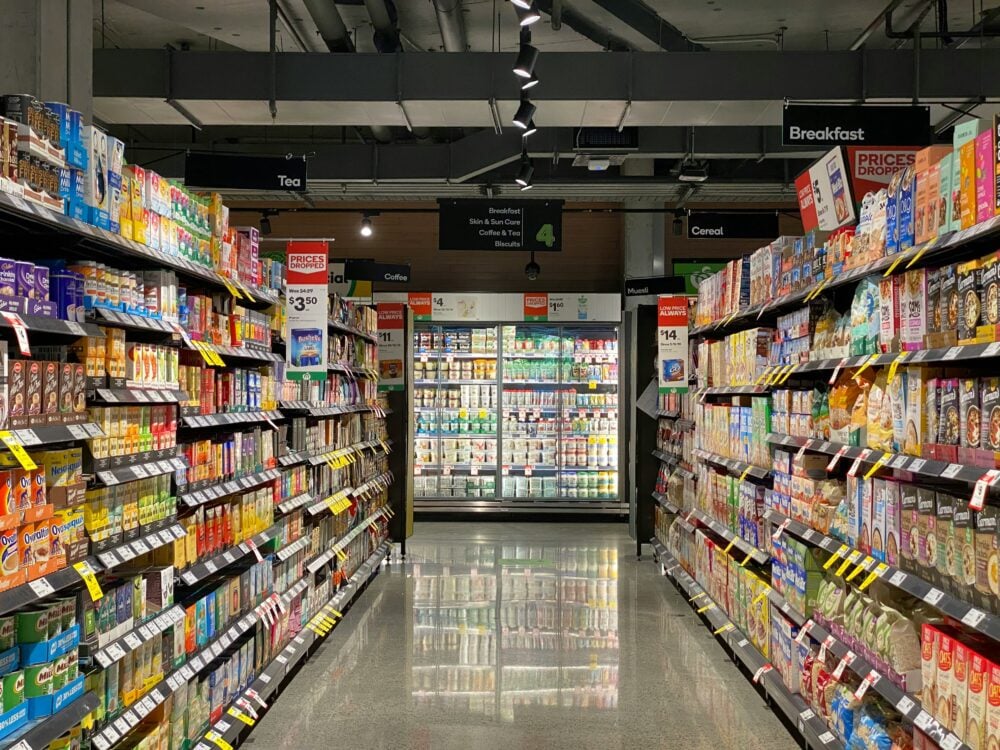Supermarket Injury. Can I sue?


Claims for compensation after a supermarket accident are common but complicated, writes TGB Lawyers’ Public Liability Law Team.
Whether it’s Charlie Chaplin, The Three Stooges or Australia’s Funniest Home Videos, slapstick never dies. People still laugh heartily at mishaps. However, in the movies, no one gets hurt. The reality is light years away. The supermarket slip is the most common public liability claim in which lawyers are instructed. Supermarkets are busy places with a lot of foot traffic. There is a significant potential for spillage. In the old cartoons, the banana peel was the usual culprit. Today, it is the grape or the mushroom. However, most slips occur when liquid is spilled or walked on to the floor and not detected and dealt with in time to stop the accident. Occasionally, floors can be inherently slippery because the supermarket has laid tiling that is inappropriate for heavy foot traffic, particularly when polished.
People commonly make the mistake of assuming that if they slip and fall in a supermarket and are injured, they can automatically sue under the store’s public liability insurance policy. That is not the case. The injured person must prove that the injury occurred due to the store’s negligence. Supermarkets do owe customers a duty of care. The Courts recognise that supermarkets profit from their customers and expect them to provide a safe environment for those customers. The standard of care placed by the Courts on supermarkets is higher than those of other occupiers, particularly government authorities, because the Courts accept that supermarkets have more resources to invest in providing a safe environment than public authorities.
However, the Courts do not require perfection. They do not expect supermarkets to be able to keep their floors in a pristine state at all times. But the Courts expect supermarkets to have a system of cleaning in place where floors are inspected at regular intervals of around 20 or 30 minutes. Where spillages are identified, staff are expected to place visible barriers or warning signs around the area, to mop up the spillage promptly, and to maintain the barriers/warning signs in place until the floor dries. Hence, supermarkets can escape liability if they can establish that they have a reasonable system of cleaning in place.
The plaintiff (the person suing) is at a disadvantage when it comes to gathering the evidence after a fall has occurred. Sometimes, a plaintiff is knocked unconscious. If the plaintiff has suffered a serious injury they are not going to be thinking like a lawyer. They will be in shock, extreme pain and praying for the ambulance to come. Conversely, supermarket staff will be beginning the process of claim management, filling out an incident report and interviewing staff.
When a person suffers an injury from a supermarket fall and instructs a lawyer, the lawyer will ask that person a long list of questions covering topics such as when, where (specifically, what aisle), what direction, where were you looking, what were you pushing or carrying, footwear, speed, the mechanics of the fall, the presence of warning signs and whether a report was completed. Generally, the plaintiff will be lucky if he or she can answer a handful of these questions. The questions must be asked because the Courts will ask such questions if the matter goes to trial. The Court places the burden on the plaintiff to prove his or her case.
It all comes down to the system of cleaning. If the supermarket has a regular system of cleaning in place, where the floors are checked every 20 or 30 minutes, the injured person is going to be in a difficult position. The only potential exception will be where the spillage has been caused by a staff member of the store. However, most supermarkets do not have a structured system of cleaning in place. Generally, they attend to spillages when they are reported, but do not regularly check the floors. The Courts have already ruled that this is not adequate. Hence, if you have a fall at a supermarket and instruct a lawyer, do not be surprised if the lawyer asks you to attend at the supermarket and spend an hour or so there observing if the floors are checked regularly.
However, claims have failed where the injury party has been able to establish that a system of cleaning was not in place. There was a recent decision in the New South Wales Supreme Court of Appeal where the plaintiff slipped when her crutch caught a cooked chip. The plaintiff could not recall whether the chip was warm or cold. As a result the Judge decided that the plaintiff could not prove that the chip was on the floor for long enough to have been picked up in time by a regular system of cleaning. The case will now be heard by the High Court.
Hence, if you have a slip and fall at a supermarket and suffer an injury, it pays to be as observant as you can of the floor, your surroundings and everything else that is going on while you wait for help. If you see someone have a fall, come forward and give that person your details as you might be the difference between the person winning or losing that case. It might have seemed funny at the time, but fractured hips, herniated discs and torn knee ligaments are no laughing matter.
TGB Lawyers is South Australia’s largest injury law firm. For a free initial interview about your potential claim contact us.